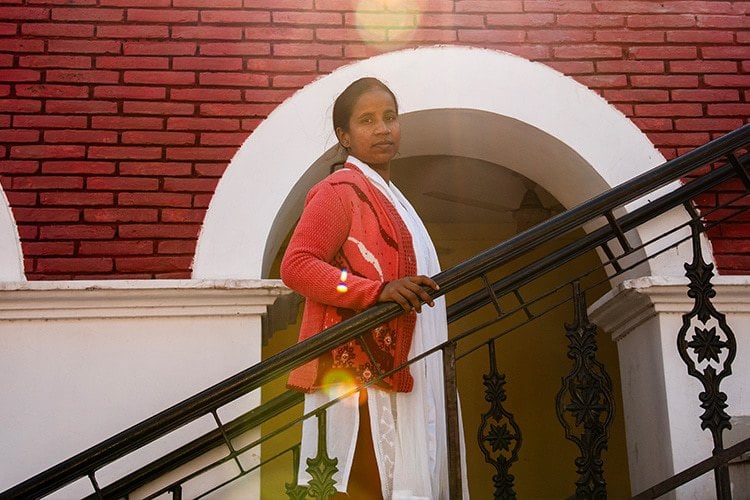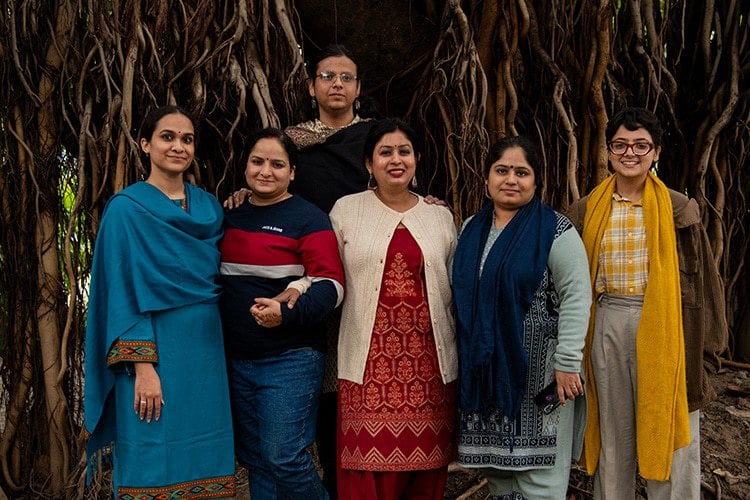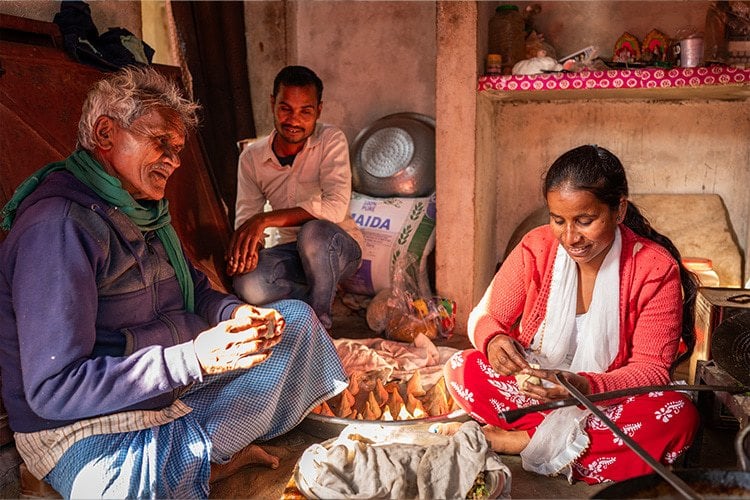
Santoshi is the youngest of seven siblings in a family where none of her older sisters ever went to school and all were forced into marriage. As her sisters’ lives unfolded, Santoshi understood she couldn’t follow in their footsteps. She convinced her parents to allow her to go to school, but that was the extent of her freedom. She knew she was still expected to marry young and live a narrow life at home dictated by her parents and eventual husband.
When Santoshi discovered a youth group led by HUMSAFAR in her community, her world blossomed open. Across 35 communities in Lucknow, India, longtime AJWS grantee HUMSAFAR engages about 10,000 youth and LGBTQI+ people through these groups. The organization (which roughly translates to ’partner on a journey’ in Hindi) was founded as a crisis center for survivors, offering an emergency hotline, connections to shelters, legal assistance and representation, hospital advocacy, accompaniment to police stations and more.
Since then, they’ve expanded to address the root causes of violence against women and LGBTQI+ people in India: patriarchal values, discrimination and fiercely restrictive gender norms.
“I learned about my rights: from mobility, to employment, to education, to choose my own marriage. To take control of my own life,” says Santoshi. “That I can come freely to HUMSAFAR’s office — truly, this is one of the biggest achievements of my life.”
Santoshi continued on to college and began co-facilitating HUMSAFAR’s youth group meetings, empowering other young women. But this visibility felt threatening to local boys, who were raised understanding that a woman’s place is at home, married.

“You can never show your face in public again”
One night, she received an anonymous message on Instagram — sent from an account with her face edited onto a nude woman’s body. The sender threatened to spread the fake photo to Santoshi’s friends and family. Santoshi asked who they were, and they responded: “Your enemy, here to make sure you can never show your face in public again.”
Santoshi recognized this as an attempt to silence her. “Through HUMSAFAR, I support girls who’ve been harassed by boys, who stand up for their rights. I believe this is why they targeted me,” she says. “They thought my family would limit my freedom if they smashed my reputation. But I refused. I said, ‘go ahead. This isn’t even my photo.’ I’ll never go back to where I came from.”
This form of harassment is common in India. When girls refuse advances or proposals from boys, boys strike out through blackmail. Girls are often pushed to commit suicide.
“It happens all the time,” she says. “Girls would rather die than risk a family’s reputation by going to the police.” But Santoshi wouldn’t cower.
She called the HUMSAFAR team immediately, sharing screenshots of her messages. Rubeena, one of HUMSAFAR’s youth group leaders, spoke with Santoshi through the night, and in the morning accompanied her to the cybercrime unit of her local police station, where they filed a case of harassment. Unfortunately, the account had already been deleted — but Santoshi felt her strength multiply.
“When I wrote back to that person, they understood my power as a woman. I had the strength to stand up, the strength to file a complaint. And that strength came from HUMSAFAR,” she says. While no legal action could be taken, Santoshi’s courage was praised by police, who said they wished all girls would fight back like her.

“I feel unstoppable”
Months later, Santoshi put that courage to paper and wrote a poem called “I am Santoshi.” She read it onstage at a local Lucknow poetry competition. Its words speak volumes:
“The shackles my parents put me in weighed heavy on me. A hunter came and put me in a new cage. All the colors of my life escaped me… I used to cry alone and remain suspended in my imagination. Then HUMSAFAR led me to liberation and showed me a way forward. I am Santoshi.”
Today, Santoshi feels unstoppable.
“We are working towards a larger social change, where girls know their rights and boys know to respect those rights. They say ‘stay at home. Whatever you get to eat, eat it. Whoever you’re told to marry, say yes. Whatever you’re forced to wear, be grateful.’ But this is not me,” says Santoshi. “I’m always going to fight for my rights to choose what’s best for me. And I’ll keep fighting until all women have the same strength that HUMSAFAR gave me.”

